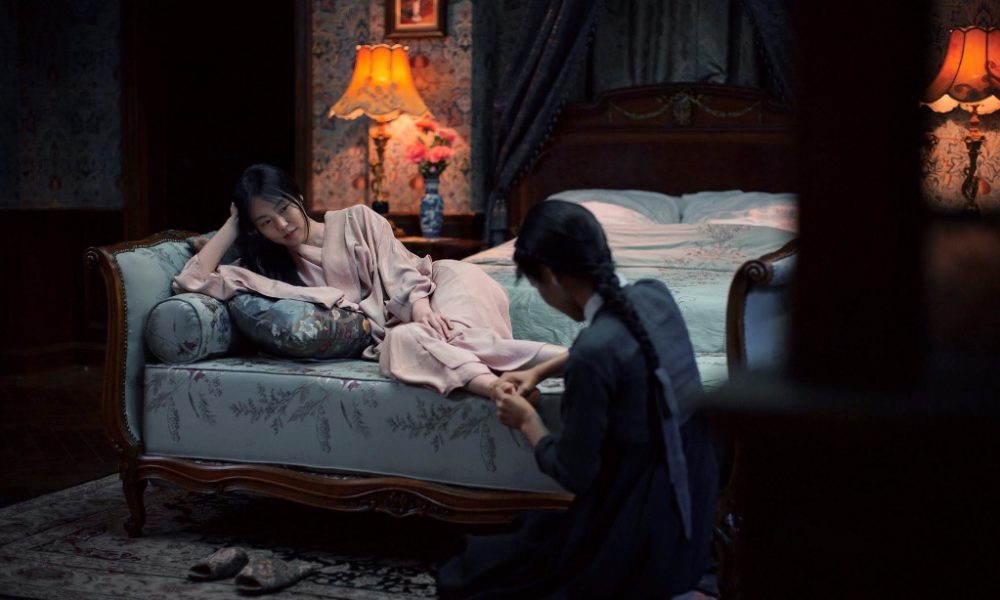The Handmaiden

The Handmaiden is loosely based on Sarah Waters’s novel Fingersmith, which saw female pickpocket Sue Trinder pose as a maid in order to defraud a wealthy heiress. She ends up falling in love and embarking on a powerfully erotic odyssey, with narrative tricks and turns helping to keep the reader turning pages at a furious rate. Yet where the novel dealt in the stifling petticoats of the Victorian era, the film deals more directly in fleshy matters, exaggerating the story’s melodrama and Gothic sensuality with stunning displays of cinematic artifice.
For this is the work of Park Chan-wook, South Korea’s answer to Brian de Palma, whose Oldboy still stands astride Korean cinema’s blood-soaked noughties run. But The Handmaiden feels like a real step forward for Chan-wook – not because it is any less visually gorgeous or narratively unpredictable than his previous efforts, but because it no longer feels beholden to being shocking for the sake of it.
True, those who enter this latest feature unawares might find themselves rather taken aback by how far this story – once adapted for the BBC, mind – goes. Starting on a respectable note, with poor Korean maid Sook-Hee (Kim Tae-ri) sold to the rain-soaked estate of Japanese Lady Hideko (Kim Min-hee), it pivots on a moment of visual slapstick, and quickly reveals that Sook-Hee works for con artist Count Fujiwara (Ha Jung-woo), who wants to marry Hideko and commit her to an asylum – thus escaping with her fortune.
The perviness of the material then reveals itself, as Sook-Hee discovers that the snake-like Uncle Kouzuki (Cho Jin-woong) has Hideko read aloud pornography for a crowd of lusty male admirers. Yet even before the exquisite scene in which Hideko mounts a wooden dummy to satiate their male fantasies, the entire household has been imbued with a sense of lust through Chan-wook’s sensual, unabashedly erotic fetishisation of material objects. He connects gloves and shoes with the soft texture of skin, developing the attraction between the maid and mistress with an escalating series of intimate rituals. A scene in which Hideko sucks on Sook-Hee’s thumb in the bath is soon dwarfed by the first confirmation of sexual advances – first implied, then revisited in the second act as a “scissoring” scene.
It’s here that some find a sticking point, in that there is something possibly problematic about a male director depicting lesbian intercourse as something so pornographic. But this seems to miss the point about these scenes being supported by their context. Not only is the entirety of The Handmaiden luridly excessive, but it sees Hideko looking to re-appropriate male fantasies for herself, as an expression of intimacy and, yes, her own burgeoning feminism. For while Sue Trinder whispering “You pearl!” is undoubtedly more poetic than two girls clonking their labias together, it arguably isn’t more cinematic.
And Park Chan-wook has seldom been more cinematic than this. From his comedic blocking to the way he structures his story as a three-tiered contraption of conflicting desires, it is never less than delightful and engrossing in its depiction of women finding ways to enjoy themselves and escape repression – a rare sight in period drama, and a splendid indicator of the (hopeful) resurgence of erotics in cinema.
Sam Gray
The Handmaiden is released in selected cinemas on 14th April 2017.
Watch the trailer for The Handmaiden here:


























Facebook
Twitter
Instagram
YouTube
RSS